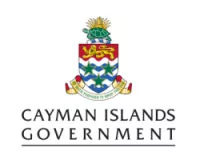- with readers working within the Banking & Credit industries
GRAND CAYMAN, Cayman Islands – The Cayman Islands Government notes the publication of the Tax Justice Network's (TJN) latest secrecy index.
Responding, the Chief Officer in the Cayman Islands Ministry of Financial Services, Dax Basdeo: "The Cayman Islands's standards of transparency are based upon recognised global standards. Unfortunately, the TJN's methodology remains flawed, as does their definition of regulatory standards, which are not recognised by any global standard setting body.
"We do not work in 'secret', rather we continue to work cooperatively with tax and law enforcement authorities around the world as is reflected by independent assessments of our regime."
The Cayman Islands continuously makes enhancements to legislation and regulation to ensure our transparency and international cooperation frameworks remain in line with evolving global standards. The TJN ignores that the Cayman Islands meets the global standards.
As has been pointed out before, a number of flaws in the TJN's methodology deserve closer scrutiny:
Firstly, the TJN's weighting system penalises countries with successful financial services industries. The index incorrectly equates a country's success in financial services with secretive banking, anonymous shell company ownership, anonymous real estate ownership or other forms of financial secrecy. That's not supported by the facts and is not how we operate in the Cayman Islands. The Cayman Islands does not permit shell companies, bearer shares or anonymously numbered bank accounts that conceal ownership. We were also among the first International Financial Centres (IFCs) to commit to public registers of beneficial ownership. That puts us at the forefront of initiatives to enhance tax cooperation and transparency.
Secondly, the TJN's assessment criteria are geared toward countries with direct taxation systems. Our public revenue is collected upon transactions, principally on goods, but the TJN's methodology doesn't account for this. For example, one of its Key Financial Secrecy Indicators (KFSI) isn't applied to jurisdictions with indirect taxation, and so TJN arbitrarily ascribes a full secrecy score to Cayman.
We have a close working relationship with the UKs National Crime Agency and share information with countries around the world, so that tax administrations can pursue individuals or entities if they fail to pay the full amount of the taxes they owe to their home countries.
Additionally, the TJN has ignored the significant legislative and regulatory enhancements that the Cayman Islands has made. In line with evolving global standards, we have adopted a number of new laws that support tax transparency and even greater cooperation with our international partners.
The content of this article is intended to provide a general guide to the subject matter. Specialist advice should be sought about your specific circumstances.

